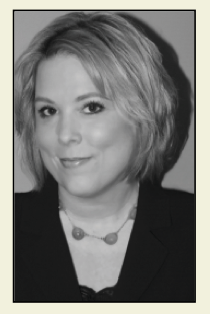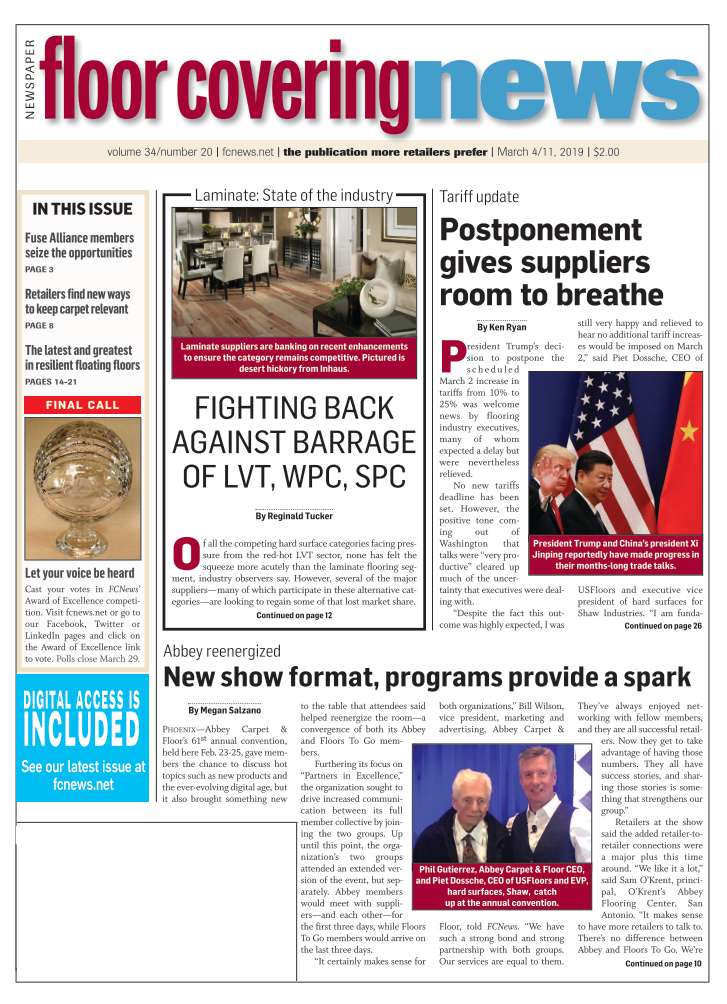March 4/11, 2019: Volume 34, Issue 20
By Kelly Oechslin
 In today’s fast-paced business environment, data is increasingly complex and harder to manage. Without integration geared to the way you do business, no amount of staff meetings, afternoon appointments with the CPA or physical inventory counts will tell you the nitty gritty details of exactly what is going on in your business, and certainly not in a timely fashion.
In today’s fast-paced business environment, data is increasingly complex and harder to manage. Without integration geared to the way you do business, no amount of staff meetings, afternoon appointments with the CPA or physical inventory counts will tell you the nitty gritty details of exactly what is going on in your business, and certainly not in a timely fashion.
Data is arriving from more sources, in greater quantity and more quickly than ever before. This makes speed incredibly important to flooring firms managing and using their data. That’s why a flooring-specific, fully integrated software system is needed. A lack of the right technology will put you well behind the competition, not to mention keep you spinning your wheels just getting through day-to-day business operations.
Selecting generic software will create immediate and long-term issues because it is not capable of providing the type of data needed to support the needs of flooring companies. No matter how easy to use a particular software is or claims to be, it must be relevant to operations and automate every aspect of your business. Alternately, investing a few hundred thousand dollars trying to retrofit a system to the way a flooring business works is a waste of time, money and resources, and ultimately unnecessary with the choices on the market today—RollMaster Software being chief among them.
“I’m going on 20 years with RollMaster,” said Tina Dias, owner, Advanced Flooring, Rancho Cordova, Calif. “I don’t see how I could really know my business or trust the accuracy of reports without RollMaster.”
Another costly mistake: Not integrating your accounting with the rest of your business. This leaves you with an incomplete picture of your overall operations. You’ll also have less control of your critical processes, such as inventory valuation, transfers between branches, purchasing and receiving, cost analysis, sales commissions and more. Why not have all that information at your fingertips?
Dean Culp, owner, Carpet Barn, Spokane, Wash., currently uses industry-specific software. “We’ve had a lot of success over the last five years with RollMaster. We’ve increased sales and we’ve grown our business. A good portion of that has to do with RollMaster making us more flexible in the way we write and account for business.”
A third consideration is how a flooring software company carries out implementation of the software. Employee training is essential, and on-site training produces the best “go-live” results, not to mention helping to effectively transition to post-implementation support.
Off-site training is not the best way to start using a new system, as it limits discussion of your specific business processes. You benefit most when your implementation is effective and the software vendor becomes a partner.
Lastly, the better flooring software vendors are continuously developing new and better ways for you to run your business. Your software should utilize Application Program Interface (API) endpoints that are designed to create analytics for you to quickly analyze real-time data and integrate your data with other marketing and business development apps. These tools and integrations must continually evolve so owners and managers can detect patterns, automate decisions and generate job-related communications.
If you truly wish to run your business, and not let it run you, make the time to research the best flooring software fit for you.
Kelly Oechslin, a graduate of the University of Georgia with a degree in marketing, has spent her entire professional career in the flooring industry. Her early employers were Floor Coverings International and Carpax Associates; however, the majority of her efforts and achievements in the industry have been with RollMaster Software.

